Filter by
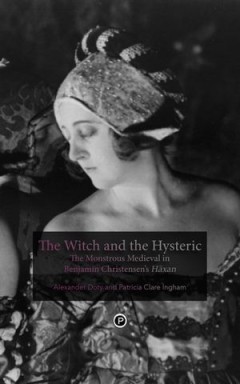
The Witch and The Hysteric: The Monstrous Medieval in Benjamin Christensen'S …
Benjamin Christensen’s 1922 Swedish/Danish film Häxan (known under its English title as Witchcraft Through the Ages) has entranced, entertained, shocked, and puzzled audiences for nearly a century. The film mixes documentary with fantasy, history with theatrics, religion and science, the medieval past and modern culture. This uncanny content is compounded by the film’s formal strangeness, …
- Edition
- -
- ISBN/ISSN
- 9780692230152
- Collation
- -
- Series Title
- -
- Call Number
- 791.43 DOT w
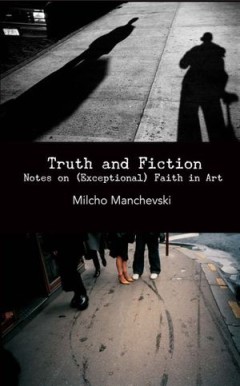
Truth and Fiction: Notes On (Exceptional) Faith in Art
Reflecting upon his experience making his 2010 feature film Mothers, a cinematic triptych interweaving three narratives that are each, in their own way, about the often tenuous lines between truth and fiction, and one of which actually morphs into a documentary about the aftermath in a small Macedonian town where three retired cleaning women were found raped and killed in 2008 and the murderer …
- Edition
- -
- ISBN/ISSN
- 9780615647104
- Collation
- -
- Series Title
- -
- Call Number
- 791.43 MAN t

William Warner's Syrinx: or, A Sevenfold History
William Warners Syrinx, or a Sevenfold History, may be the first English novel. Unlike others of the time, though, Warner wrote a realistic novel whose ancestors include the adventure stories of Alexandrine romance, and focus not on the tales of an aristocratic class but on the lives of middle-class individuals. Wallace A. Bacon’s critical edition brings Warner’s important novel –with its…
- Edition
- -
- ISBN/ISSN
- 9780810138230
- Collation
- -
- Series Title
- -
- Call Number
- -
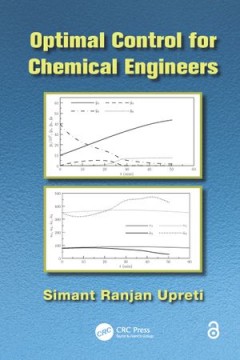
Whose History? Engaging History Students through Historical Fiction
Whose History? aims to illustrate how historical novels and their related genres may be used as an engaging teacher/learning strategy for student teachers in pre-service teacher education courses. It does not argue all teaching of History curriculum in pre-service units should be based on the use of historical novels as a stimulus, nor does it argue for a particular percentage of the use of his…
- Edition
- -
- ISBN/ISSN
- 9781922064509
- Collation
- -
- Series Title
- -
- Call Number
- -
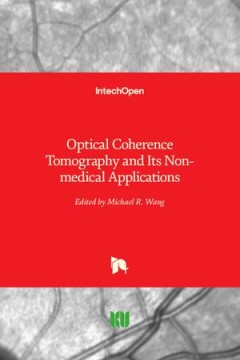
White Field, Black Seeds: Nordic Literacy Practices in The Long Nineteenth Ce…
"White field, black seeds – who can sow? Although the riddle from which this these words are taken comes from oral tradition, it refers to the ability to write, a skill which in most Nordic countries was not regarded as necessary for everyone. And yet a significant number of ordinary people with no access to formal schooling took up the pen and produced a variety of highly interesting texts: …
- Edition
- -
- ISBN/ISSN
- 9789522224446
- Collation
- -
- Series Title
- -
- Call Number
- -
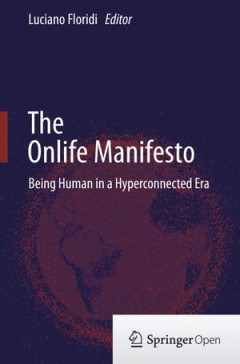
When poetry comes to its senses:* inscribed Roman verse and the human sensori…
Chapter 7 of Dynamic Epigraphy: New Approaches to Inscriptions This volume, with origins in a panel at the 2018 Celtic Conference in Classics, presents creative new approaches to epigraphic material, in an attempt to 'shake up' how we deal with inscriptions. Broad themes include the embodied experience of epigraphy, the unique capacities of epigraphic language as a genre, the visuality of in…
- Edition
- -
- ISBN/ISSN
- 9781789257915
- Collation
- -
- Series Title
- -
- Call Number
- -

What Literature Knows: Forays into Literary Knowledge Production
This volume sheds light on the nexus between knowledge and literature. Arranged historically, contributions address both popular and canonical English and US-American writing from the early modern period to the present. They focus on how historically specific texts engage with epistemological questions in relation to material and social forms as well as representation. The authors discuss liter…
- Edition
- -
- ISBN/ISSN
- 9783631757864
- Collation
- -
- Series Title
- -
- Call Number
- -
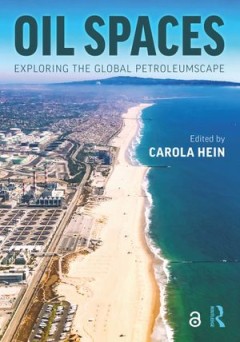
What is Québécois Literature? Reflections on the Literary History of Franco…
The question ‘What is Québécois literature?' may seem innocent and answerable, yet Rosemary Chapman's compelling study shows that to answer it is to chart the cultural history of French Canada, to put francophone writing in Canada in postcolonial context and to ask whether literary history, with its focus on the nation, is in fact obsolete. This remarkable book will be compulsory re…
- Edition
- -
- ISBN/ISSN
- 9781846319730
- Collation
- -
- Series Title
- -
- Call Number
- -
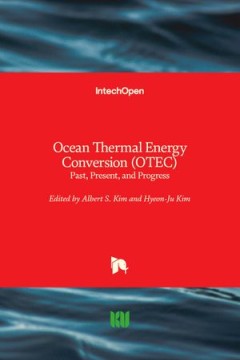
A war of individuals: Bloomsbury attitudes to the Great War
This book draws together for the very first time examples of the 'aesthetic pacifism' practised during the Great War by such celebrated individuals as Virginia Woolf, Siegfried Sassoon and Bertrand Russell. In addition, the book outlines the stories of those less well-known who shared the mind-set of the Bloomsbury Group when it came to facing the first 'total war'. The research for this study …
- Edition
- -
- ISBN/ISSN
- 9780719060700
- Collation
- -
- Series Title
- -
- Call Number
- -
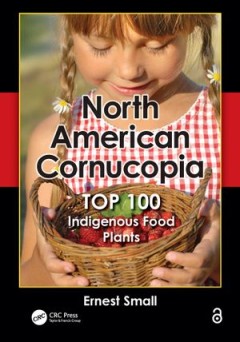
Wallenstein
" By the time Frederich Schiller came to write the Wallenstein trilogy, his reputation as one of Germany’s leading playwrights was all but secured. Consisting of Wallenstein’s Camp, The Piccolomini and The Death of Wallenstein, this suite of plays appeared between 1798 and 1799, each production under the original direction of Schiller’s collaborator and mentor, Johann Wolfgang (von) Goeth…
- Edition
- -
- ISBN/ISSN
- 9781783742653
- Collation
- -
- Series Title
- -
- Call Number
- -
 Computer Science, Information & General Works
Computer Science, Information & General Works  Philosophy & Psychology
Philosophy & Psychology  Religion
Religion  Social Sciences
Social Sciences  Language
Language  Pure Science
Pure Science  Applied Sciences
Applied Sciences  Art & Recreation
Art & Recreation  Literature
Literature  History & Geography
History & Geography